Mai Hurmat has been begging on the streets of Sukkur for the last 30 years. Petrol pumps and eateries are her favourite haunts. According to her, she gets more money in these lucrative spots than other places. At first she was reluctant to talk, but after I crossed her palm with 100 rupees, she narrated her story. “I was married to one Ghulam Ali some 35 years ago. He was a labourer and used to earn enough to make ends meet,” she said. “But, after two years of marriage, he had an accident at his work site, and resultantly lost his eyesight. I took him to various eye specialists, but to no avail.”
After losing hope, she started working as domestic help in two or three households, but couldn’t earn much. “One day, I don’t know what happened to me. Instead of going to work, I started begging on the streets and believe me, on the first day, I earned 400 rupees. With that I bought some groceries and went home. I never looked back. Since that day, I have been begging on the streets and get 800 rupees to 1,200 rupees a day,” she said smiling sheepishly.
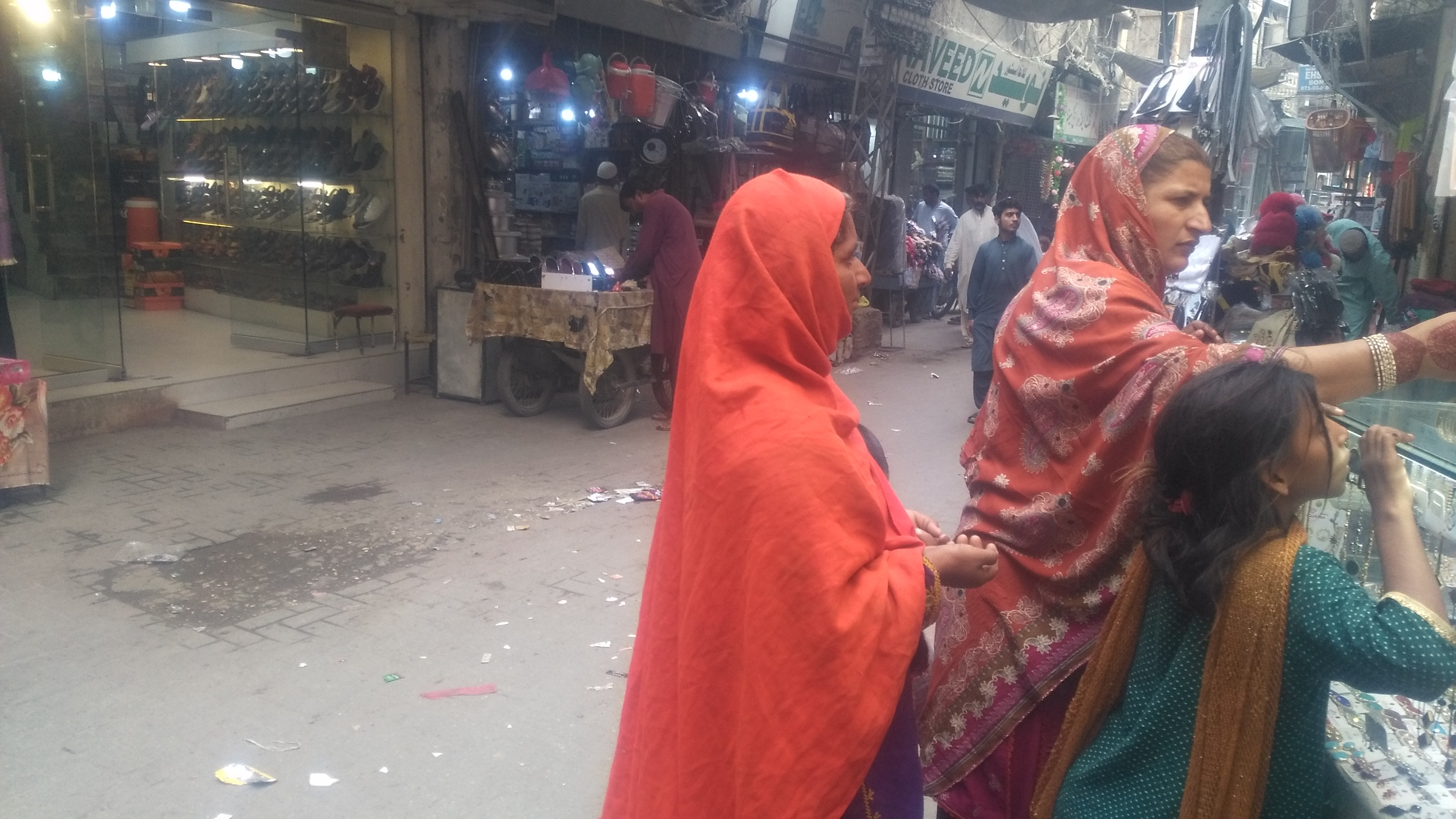
The busy areas of Sukkur are so crowded with beggars it is difficult for people visiting these places to move freely. Previously, these beggars would appear on the streets on Thursdays mostly, but, as inflation has soared, they throng the city centre seven days a week. Outside mosques and malls, restaurants and food streets, petrol pumps, busy market places, public parks and main roads, they are everywhere. A majority of the women begging are clad in shuttlecock or other burqas with their children tagging along. They follow pedestrians until they are given money. But, it is not that easy, as after giving money to one beggar, people have to deal with many others.
Most of the beggars including women and children come to the city from slums. They roam the streets and marketplaces throughout the day and in the evening return to their homes. Most of the women begging on the streets wear burqas only to pose as Muslims. Upon investigation, I was shocked to learn that the majority of such women are Hindus — Bagris, said to be the lowest caste among Hindus. “At first I used to beg on the streets without wearing a burqa,” said Mai Mukhtiar aka Mukhi, a Hindu Bagri, “but people never took me seriously. I saw that women in burqas are treated with respect and thus earn more money. So I bought a burqa and started wearing it and since then I collect 10 times more money than when I did not wear a burqa,” she said with a sly smile.
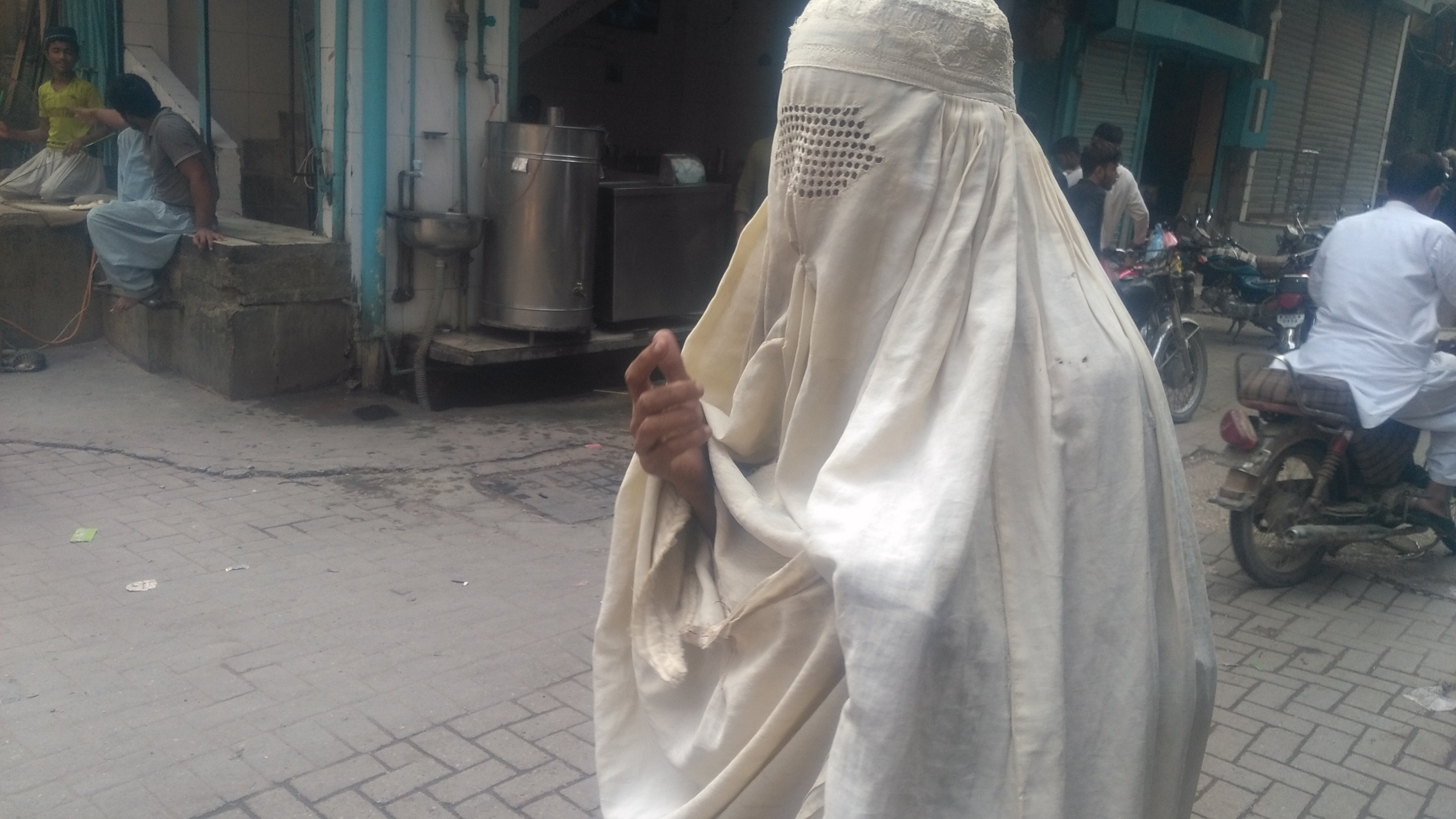
These women live in tents and makeshift houses near the Sukkur Bypass. They come to Sukkur city along with their children in the morning, while their men stay home and pass their time playing Ludo or cards. Mukhi’s husband died 10 years ago, after which she started begging on the streets along with her four kids, who at present are begging in different marketplaces. She said, in the evening, they all meet at a certain point, hire a rickshaw and go back to home after pocketing a handsome amount. She mostly prefers to beg at the shopping area of Mission Road, where more families come for shopping. “They give me money or something to eat, while my children beg at the nearby food street and the main road,” Mukhi said.
The alarming side of the story is that these beggar women bring with them teenage girls, who wear makeup to lure the men in the city. Apart from begging, a large number of these beggars, including women and children, are experts at picking pockets, whenever and wherever they get a chance. They will also steal anything they can lay their hands on easily.
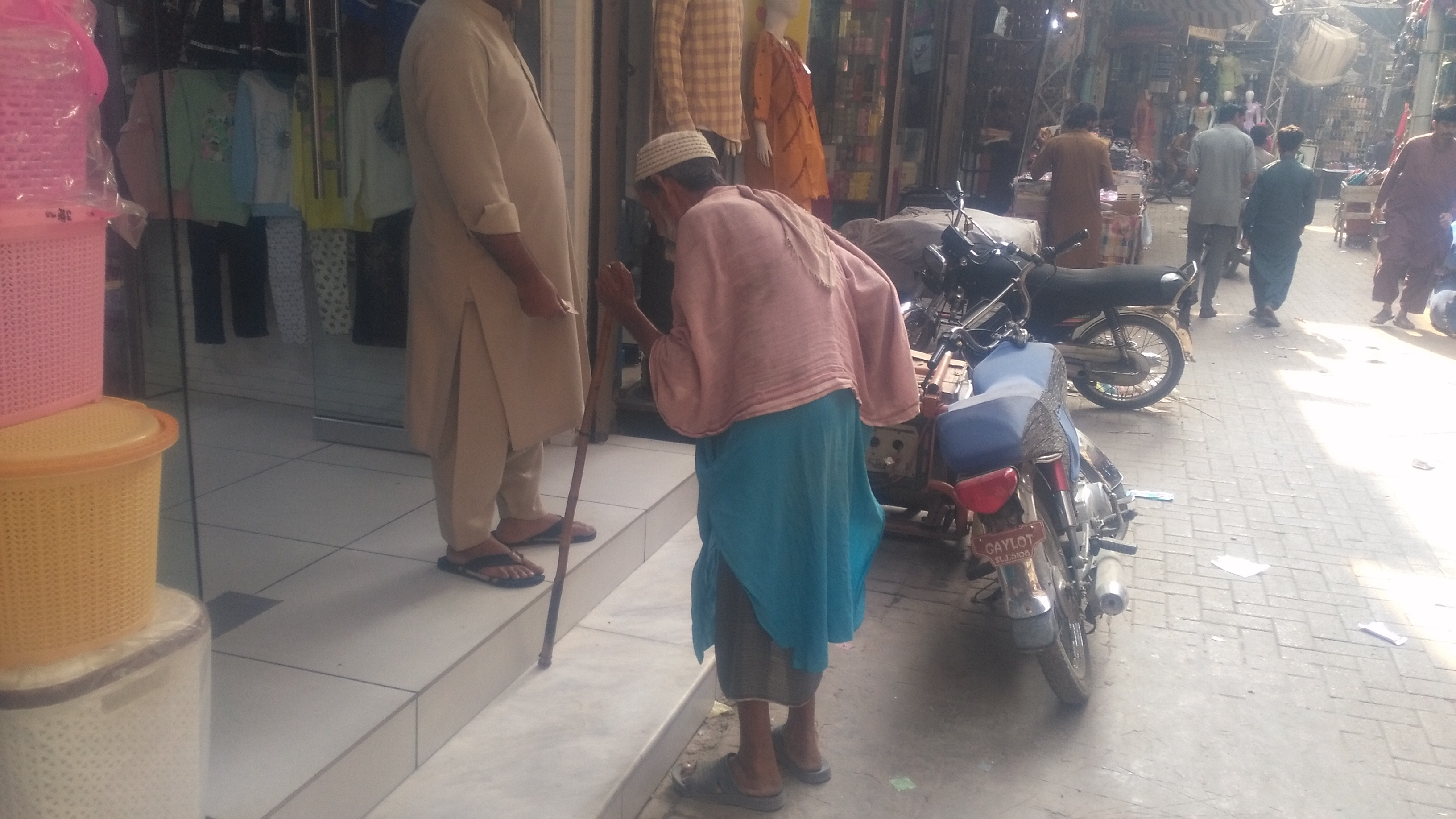
The owners of the eateries, shops and petrol pumps try hard to keep these beggars away from their places of business. The beggars go away for a while, but they return after some time. Most of them are professionals, who beg on the streets to make easy money, while the actual poor and needy seldom get charity from people, as the professional beggars push them away.
Little Asia, who is just 10 years old, begs on the streets along with her mother and five siblings. All of them jointly earn more than 2,000 rupees a day. Narrating her story on the condition that her photo will not be taken, Asia said her father stopped working when he became a drug addict. He had her and her mother go and find work then. “At first my mother worked as domestic help in a house and earned 2,000 rupees a month, which was nothing to feed our family of eight,” she said. “Later, my mother and I decided to beg on the streets and since that day we have been begging,” she told.
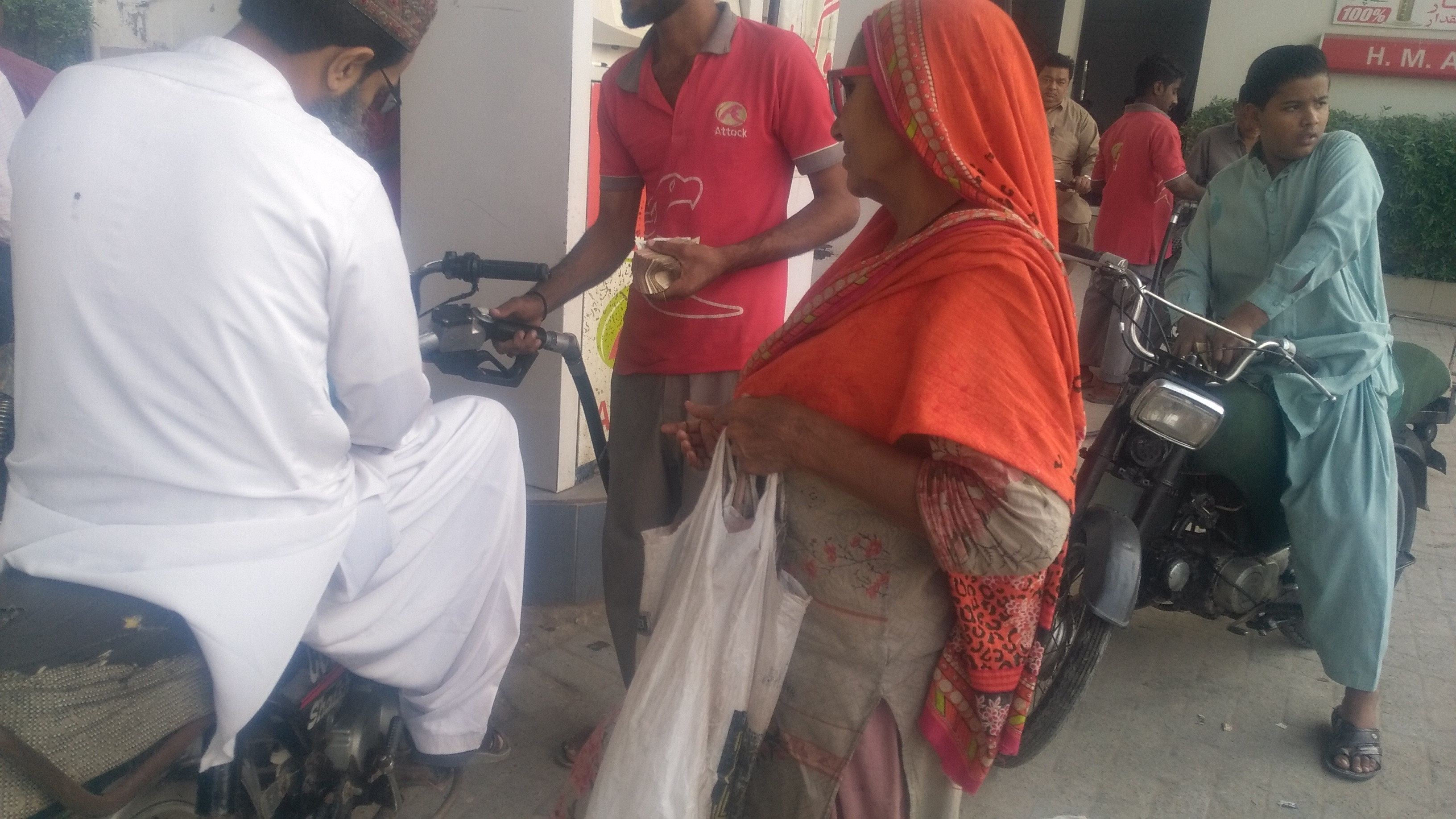
The mother and daughter leave their home in the morning at 10 am and start moving from one market to another and go home in the evening. “Whatever we earn throughout the day, is sufficient for the family, besides providing some money to my father for drugs,” Asia said.
Qurban’s story is somewhat different from the other beggars. He claims that he belonged to a middle class family, but his father’s behaviour towards him was very insulting since his childhood. Irked with his father’s meanness and mother’s passivity, he ran away from home one day. He kept walking the streets all day, and at night instead of going home, he slept in a park. “No one worried about me back at home” he said.
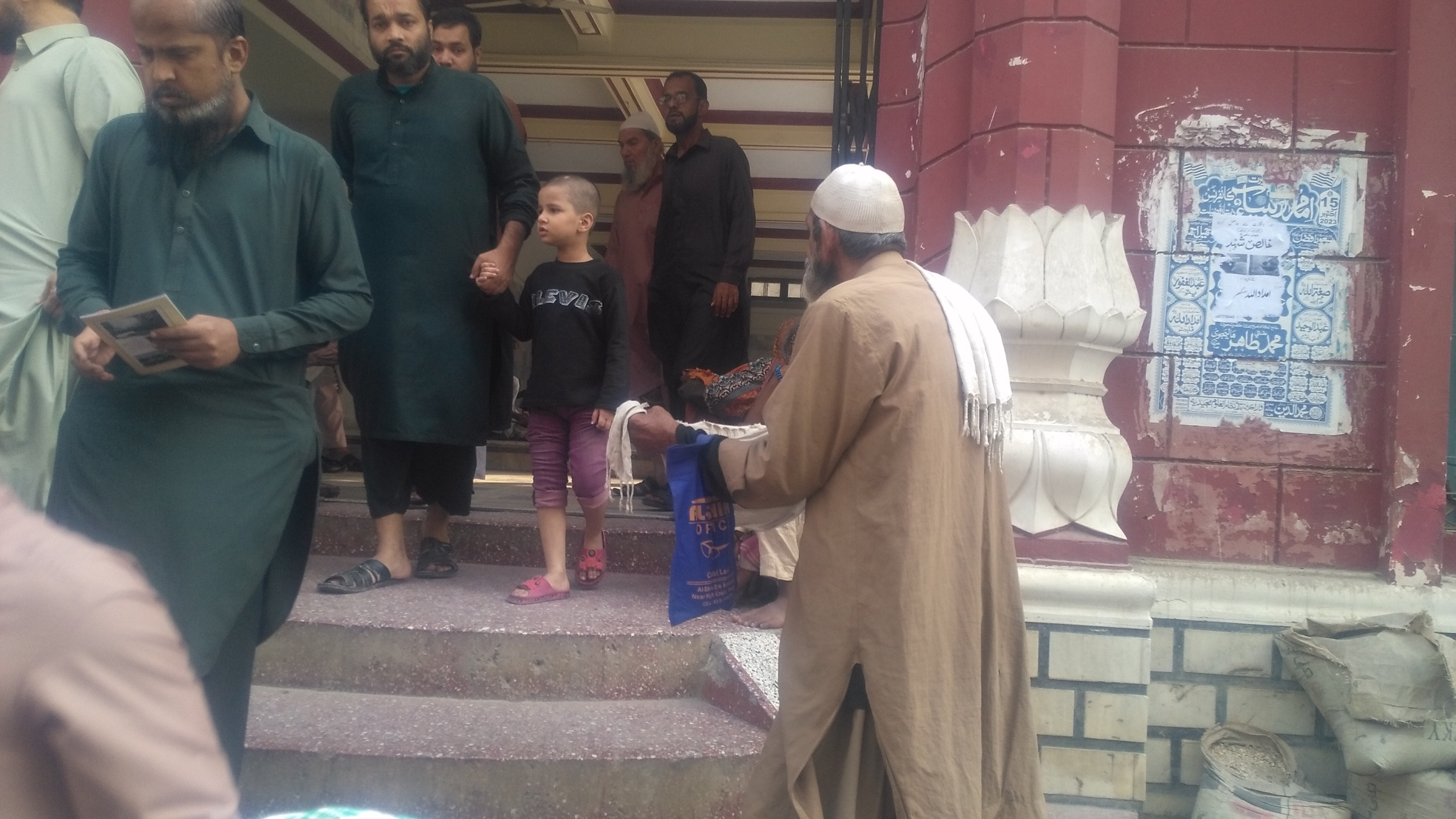
The next day, I tried to find work at a hotel, workshop or any other shop. But everyone wanted some surety which I couldn’t provide,” Qurban said. “I desperately tried to get work as a labourer, but had no luck,” he said. “I hadn’t eaten anything for last two days, so I went to a roadside hotel and asked for help. The owner was kind enough to give me a plate of chickpeas and roti. This was when I started begging,” he said with a gloomy smile.
Qurban has now become a “perfect beggar” in his own words. He earns enough to eat meals and pay rent of the musafir khana where he lives. Responding to a question about whether he feels ashamed of begging, Qurban laughed throatily and replied, “Why should I feel ashamed of begging? Our government and our prime minister and ministers beg from other countries, so what is wrong in this?”
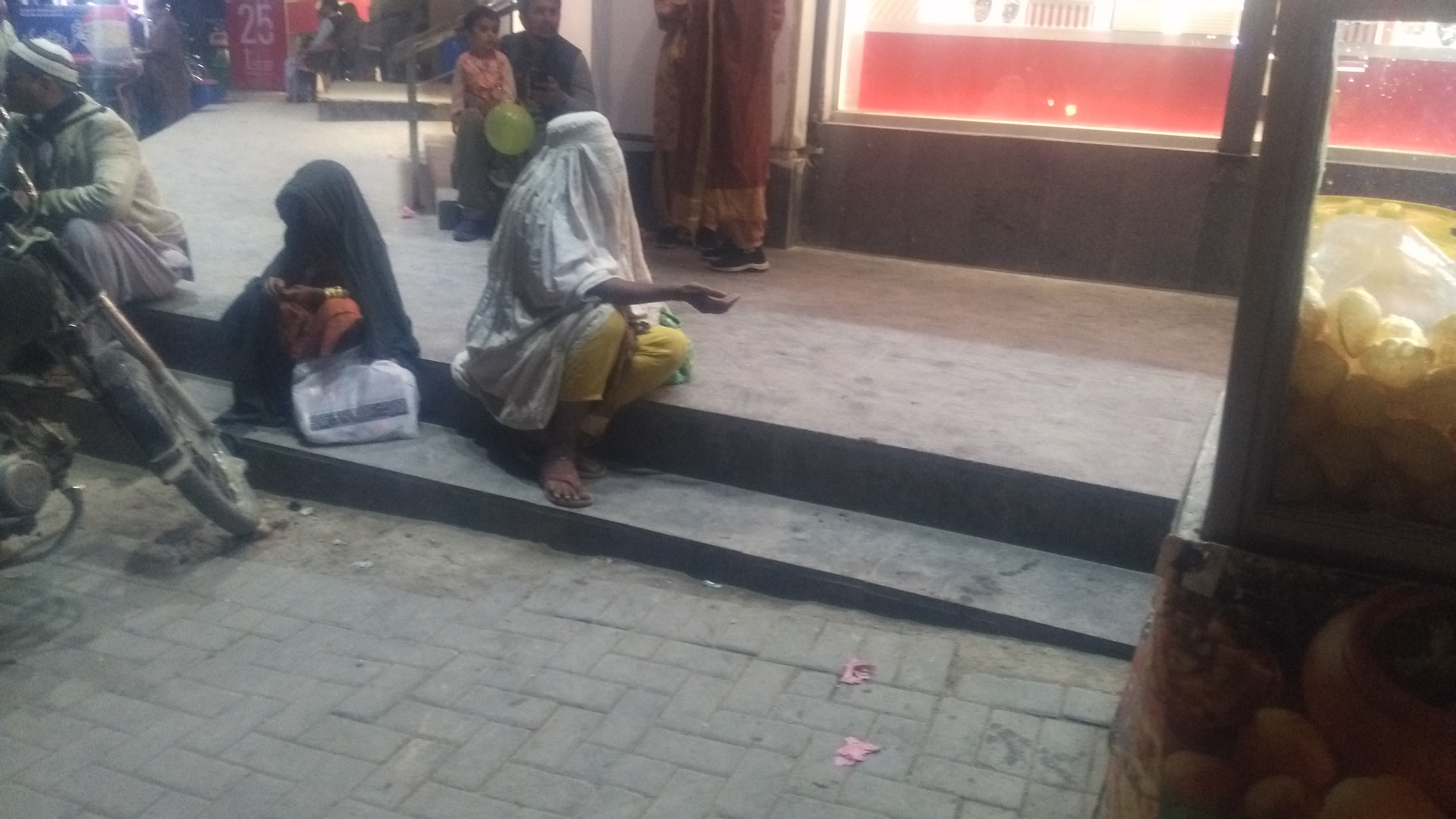
Mai Hurmat’s husband still thinks that she works as a domestic helper. She said that although the skyrocketing inflation doesn’t affect beggars, it has certainly affected the people. “Only two out of 10 persons give us money. To cope with the soaring inflation, I have increased my begging hours from six hours a day to 10 hours a day,” she continued. By evening, she usually has collected more than 1,200 rupees. It is enough for her and her husband to survive. “Eid days are always special for me, because I earn at least 5,000 to 10,000 rupees in three days,” she said.
Mohammad Moosa, a shopkeeper at Mission Road, said that these beggars, especially the women in burqas have become irksome for him. “Besides begging outside our shops, they steal whatever they can easily,” he said. “A couple of days ago, a minor boy, who is often seen begging here, ran away the handbag of a woman who was busy talking on the phone,” he related. The boy was caught and the bag recovered. In a strange turn of events, though, the soft-hearted woman let him go after giving him 50 rupees.
Another shopkeeper named Kaleem maintained his mistrust of the beggars. He said, “We have to be doubly vigilant because of these beggars, they can show their ‘talent’ in the blink of an eye.
The shop owners on Mission Road claim they have reported to the police the nuisance the beggars cause time and again but nothing has been done to root out this menace.
Sarfaraz Memon is a freelance journalist and contributor based in Sukkur. All facts and information are the responsibility of the writer
